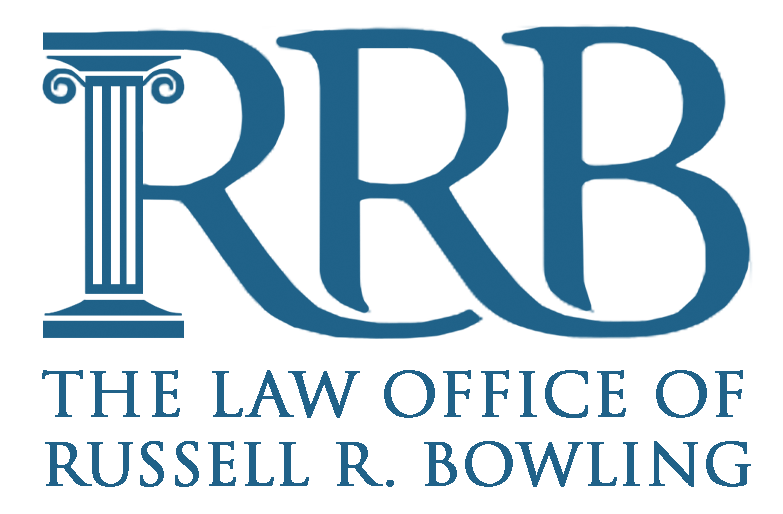SOCIAL SECURITY DISABILITY SELF HELP
FOR FIRST-TIME APPLICANTS
SHINING A LIGHT FROM
THE END OF THE TUNNEL
Applying for and receiving Social Security Disability Benefits is a multi-step process. Our law firm handles Social Security Disability cases from the point of the Social Security Administration's first denial. As such, Russell Bowling is, essentially, an appellate attorney.
Our team helps Social Security Disability applicants who have been denied benefits by a Social Security Claims Manager to seek reconsideration of their application by an administrative law judge. Though rare, some disability applicants are approved at their first application. This content is meant to be an overview of how the process works from the point of your first denial, and what you should expect from there.
For the majority of applicants, acquiring Social Security Disability benefits is a three-part multi-step process. Essentially the three parts are application submission, followed by a first and second appeal. Those three steps are described in "The Claim Process" Section below.
NOTE:
Social Security Disability is a national disability insurance funded by your tax payments.
Supplemental Security Income is a national insurance that is based on income. You may qualify for SSI while you are applying for disability.
Preparing to File Your Claim
Preparation and organization are key factors in helping applicants maintain focus. Having the following information handy will be beneficial to you while applying for Social Security Benefits.
Make a Reference File. While your Social Security interviewer will provide you a list, you will want to have the following items on hand both for the initial telephone conversation and personal interview, if required. You should put these items together before starting your initial application and to maintain copies of this information in a file with correspondence relative to your application. You will be asked for this same information several times during your application process. The tabs below to have specific information about what your folder should include. The more organized you are the less stressful the process is apt to be.
Things to add to your SSD Folder
Information Pertinent to Your History
- Your date and place of birth and Social Security number
- The name, Social Security number and date of birth or age of your current spouse and any former spouse.
- You should also know the dates and places of marriage and dates of divorce or death (if appropriate)
- Names and dates of birth of your minor children
- Your bank or other financial institution's Routing Transit Number [more info] and the account number, if you want the benefits electronically deposited

OUR SERVICES
RELEVANT ARTICLES

To schedule your consultation, give us a call or use the form you find anywhere on our website and we will connect with you as soon as possible.
WANT TO WORK WITH US?
Start Here
The Claims Process
Throughout the claims process, keep in mind that if you are granted Social Security disability, the payment formula is based on lifetime earnings and FICA taxes you have paid. Some factors that influence a determination of disability include your age, blindness, and illiteracy and/or higher education.
Starting the Process
You can apply online here: https://secure.ssa.gov/iClaim/dib.
Completing this application survey online triggers the Social Security Administration to make contact with you.
OR
Set an appointment with an interviewer by calling the office nearest your home:
- Asheville: 866-572-8361
- Hendersonville: 866-964-5053
- Franklin: 866-562-0738
For your appointment, you will need a photo ID to gain access to the Social Security Administration building.
What Happens Next:
Once your initial interview has been completed, your claim for benefits is forwarded to Disability Determination Services and assigned to a claims examiner. The claims examiner:
- will obtain and review your medical records
- may schedule a disability examination with a Social Security retained physician
- will make a determination of disability based on a rigorous set of Social Security guidelines, which do not include claims examiner discretion of any kind
In most cases (as high as 90%) applicants will receive a denial of benefits, even when other medical professionals have assigned disability ratings. Upon receipt of your denial of benefits call us.
Timeframe for Application Phase: 3-6 months
CLIENT REVIEWS
FREQUENTLY ASKED SOCIAL SECURITY DISABILITY QUESTIONS
Q. Should I Try to Work if I Have Applied for Social Security?
Yes. While you cannot be eligible for Social Security benefits while working full time, the law allows you to make…
Q. Should I Apply for Social Security When I Am Receiving Workers’ Compensation Benefits?
A. Yes, in general, Social Security law requires that you be disabled for a continuous period of twelve (12) months…
Q. If I Win My Social Security Disability Case, How Much “Back Pay” Will I Receive?
A. The exact amount of “back pay” you receive is determined by the Social Security program you are eligible for.…
Q. Am I Eligible for Social Security Disability if My Ailment is Not Permanent?
A. Yes. Social Security law requires only that the disabling condition (1) result in death OR (2) exist for a…
Q. What Type of Physical Ailments are Considered Disabling Under Social Security Law?
A. The Social Security Administration reviews the overall impact of your cumulative ailments in deciding whether you are disabled or…
Q. What Happens in a Social Security Disability Hearing?
A. Social Security Disability hearings are informal. The decisions are made by an Administrative Law Judge who generally lives in…
Q. How Do Lawyers Get Paid for Handling Social Security Disability Cases?
A. Most attorneys charge a contingent fee which is the lesser of $7,200 or 25% percent of your back benefits.…
Q. What is the Difference Between Social Security and Supplemental Security Income?
A. Both Social Security Disability (SSD) and Supplemental Security Income (SSI) are programs administered by the Social Security Administration. Both…
Q. How Do I Select a Lawyer?
A. Social Security law undergoes regular changes due to new Congressional legislation and Court decisions. Therefore, it’s essential to choose…
